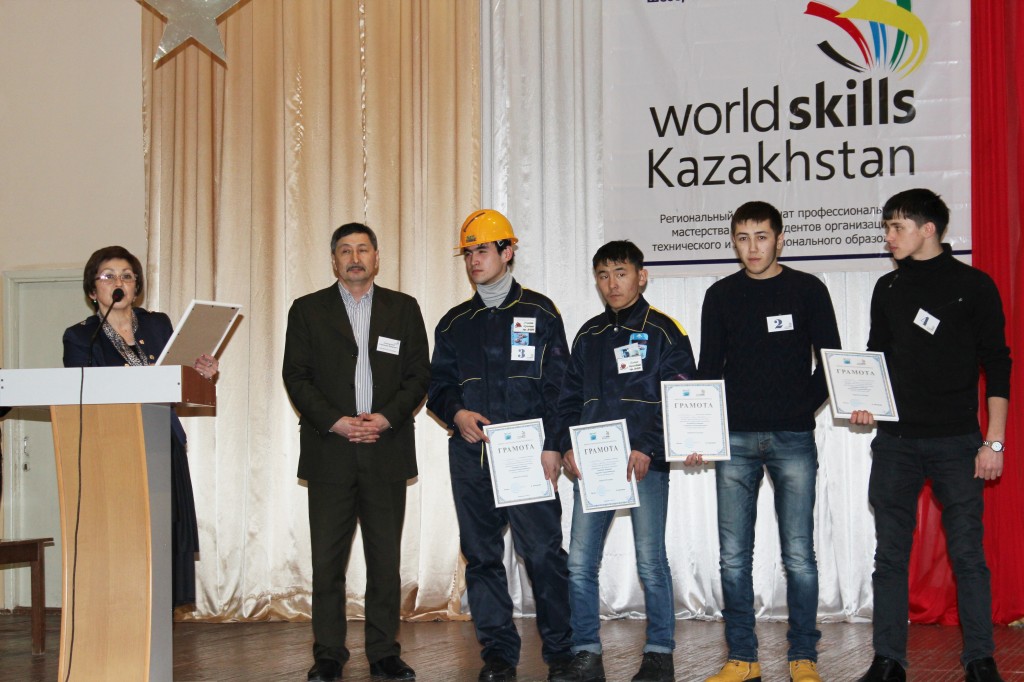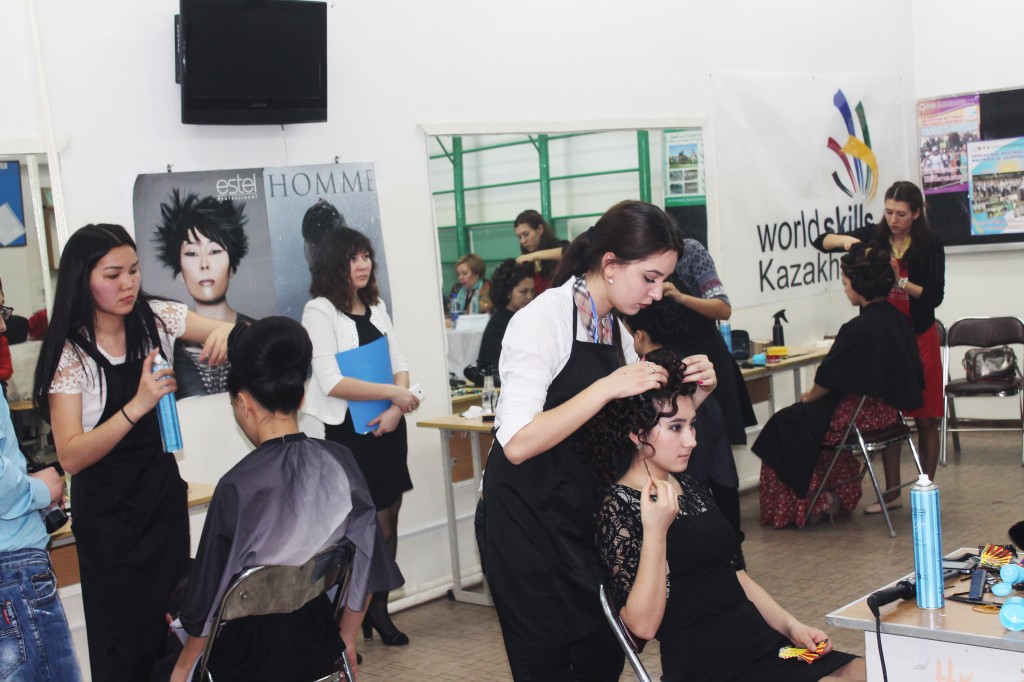ASTANA – More than 70 blue-collar workers from 15 regions of the country gathered in Astana April 9-11 to show their skills in welding, IT management, catering, hairdressing, plastering, drywall, bricklaying, plumbing and heating as part of Kazakhstan’s WorldSkills National Championship.
The championship was organised by Kasipkor Holding and featured 18- to 22-year-old workers at the start of their careers who won regional competitions in February and March.
The competition produced seven winners who will spend the next four months honing their skills and practicing their English before competing in the international championships Aug. 11-16 in São Paulo, Brazil.
Kazakhstan’s national championship is designed to attract young people to the featured industries, which are suffering a shortage of skilled staff. Amid the second five-year stage of accelerated industrialisation programme taking place across Kazakhstan, training in-demand workers and reducing the gap between the classroom and workplace are the priorities of the domestic vocational education experts.
In an interview to 24KZ, Chairwoman of Kasipkor Holding Yeldana Sadvakasova said, “The mission of WorldSkills is to enhance the prestige of the working professions, to improve the training process and change the attitudes towards blue-collar jobs.”
WorldSkills International is a global hub promoting excellence and development among professionals of blue collar occupations through grass-roots community projects, skill competitions, and knowledge exchange. The movement with its headquarters in Amsterdam aims to raise the status and standards of vocational training and qualifications around the world through international cooperation and development between industry, government, organisations, and institutions. The WorldSkills Association was founded in 1946. Its current list of members includes 72 countries. Kazakhstan joined WorldSkills International on June 10, 2014.

Young turners perform at awards ceremony, Worldskills Kazakhstan regional championship. Photograph: Worldskills Kazakhstan
WorldSkills competitions are held in six major industries and 45 professional disciplines. However, the number of competencies is growing, as every member state can propose a new discipline to be included in the championships.


